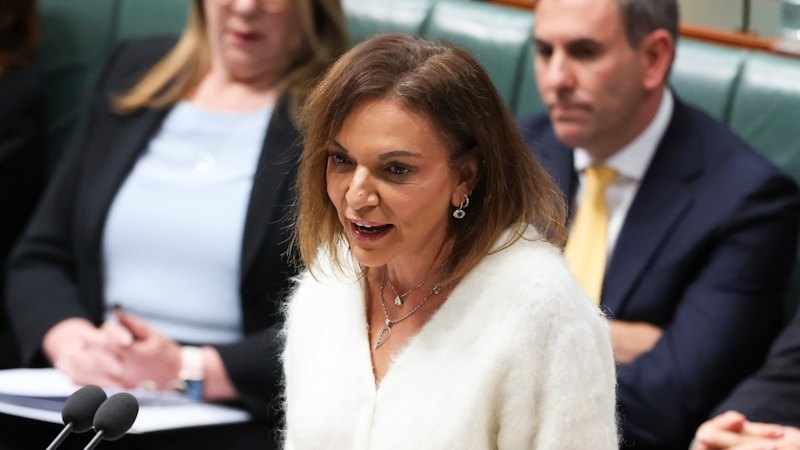
Opposition health spokeswoman Anne Ruston has maintained her stance on the Coalition’s ongoing review of its energy policy, choosing not to engage with Pauline Hanson’s Senate motion that attempted to challenge opposition MPs on the 2050 net zero emissions target. The motion, which sought to abandon the net zero target, was largely sidestepped by Coalition MPs under the guidance of Opposition Leader Sussan Ley, with most members abstaining from the vote.
Notably, moderate backbenchers Jane Hume and Andrew McLachlan voted against Hanson’s motion, while right-wingers Matt Canavan and Alex Antic supported One Nation. This division highlights the growing tension within the Coalition regarding the future of Australia’s energy policy.
Internal Tensions and Strategic Abstentions
The Coalition’s decision to abstain from Hanson’s motion reflects a strategic approach to manage internal disagreements while the party conducts a comprehensive review of its energy policy. This review was commissioned following the Coalition’s election defeat in May, aiming to reassess its stance on emissions and energy sustainability.
Anne Ruston emphasized the importance of considering the “broad range of views” within the party. She stated, “We go through a really robust process around what our energy policy is going to be going forward, underpinned by making sure we’ve got a stable energy grid and that we play our part in reducing emissions in a responsible and transparent way.”
Historical Context and Policy Implications
The Coalition’s approach to energy policy has been a contentious issue historically, with divisions often arising between those advocating for strong environmental policies and those prioritizing economic growth and energy security. The net zero emissions target by 2050 has been a particularly polarizing topic, reflecting broader global debates on climate action.
Hanson’s motion coincided with maverick Nationals MP Barnaby Joyce’s proposal in the House of Representatives to remove the net zero target, signaling a potential shift in the Nationals’ stance. The Nationals appear poised to distance themselves from the commitment, while Ley has remained non-committal about the Liberals’ future position.
Expert Opinions and Industry Reactions
Experts in the field have weighed in on the implications of the Coalition’s internal rift. Dr. Sarah Johnson, a climate policy analyst, noted, “The Coalition’s indecision on the net zero target could undermine Australia’s credibility on the international stage. Consistent policy is crucial for attracting investment in renewable energy and meeting global climate commitments.”
Meanwhile, industry leaders have expressed concern over the uncertainty surrounding the Coalition’s energy policy. Renewable energy companies, in particular, are keen to see a clear commitment to emissions reduction targets to guide their long-term investment strategies.
“A stable and predictable policy environment is essential for the growth of the renewable sector,” said Mark Peters, CEO of Green Energy Solutions. “The ongoing review should prioritize clarity and consistency to foster industry confidence.”
Looking Ahead: The Future of the Coalition’s Energy Policy
The Coalition’s energy policy review is expected to conclude in the coming months, potentially setting the stage for a unified stance on emissions targets. However, the internal divisions revealed by the recent motions suggest that achieving consensus may be challenging.
As the Coalition navigates these internal dynamics, the broader implications for Australia’s climate policy and international commitments remain significant. The outcome of the review will not only shape the Coalition’s political strategy but also influence Australia’s role in global climate action.
Observers will be closely watching the developments, as the Coalition’s final decision on the net zero target could have lasting impacts on both domestic policy and international relations.






